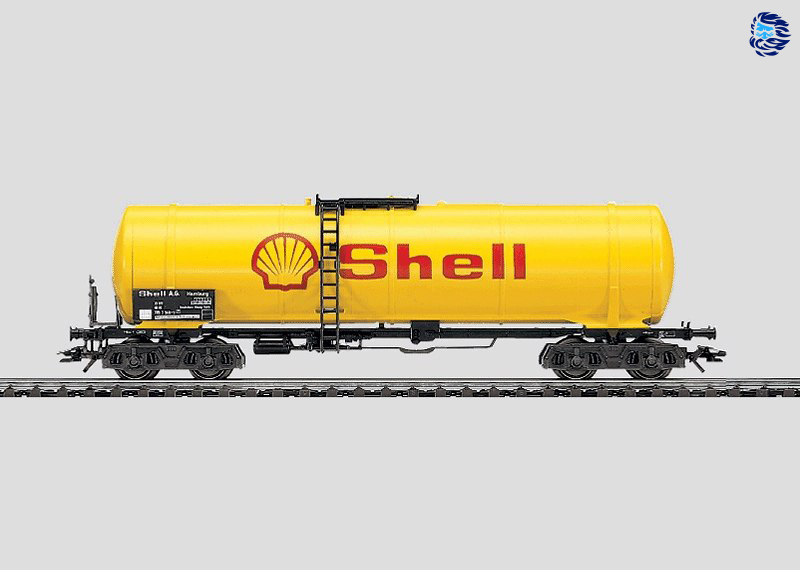
In March 1878, Dervish Pasha, the commander of the Turkish troops, handed Prince Svyatopolk-Mirsky the keys to the city of Batumi, and in June of the same year, the Berlin Congress approved the status of the port of Batumi as a port-franco, that is, a port where import and export duties goods were not charged.
In the same year, two merchants of the first guild (both railway engineers), Palashkovsky and Bunge, began the construction of the Baku-Batumi railway.
The benefits of this road were obvious: the Baku oil producers, who “ridden” the richest and most developed mines, needed access to the sea, and the possibility of duty-free export of “black gold” opened incredible horizons.
Palashkovsky and Bunge invested their own funds in the construction, which, however, could not be enough to complete the construction. Financial support of the work, according to the plan of the partners, was supposed to be their oil company, a kerosene plant and a plant for the production of tin containers.
However, the volatility of prices for petroleum products played a cruel joke on the engineers: in the 80th year, they collapsed, which put Palashkovsky and Bunge on the brink of bankruptcy.

Batumi seaport in the 19th century. In the future, the landscape, of course, will change: at the beginning of the twentieth century, the population of Batum will be 16 thousand people of both sexes, including babies, the life of a thousand of them will, in one way or another, be associated with oil. A certain Joseph Dzhugashvili will also fictitiously "work" at the refinery, who will manage to incite the workers of the refinery to the strike.
I must say that in those years Russia experienced a colossal shortage of money, there was simply nowhere to take borrowed funds to continue construction - the domestic merchants, realizing all the future benefits that this railway could bring, were not able to offer the project adequate financing. Palashkovsky turns to the French Rothschild family, who are quick to assess the benefits of this project.
By that time, the Rothschilds are involved in financing the construction of almost all railways in Europe, they have experience and almost unlimited financial capabilities, they are even familiar with the production of kerosene (no one knows how, by that time they were the owners of a kerosene plant on the Adriatic, well, yes, everyone knows that some property often "sticks" to bank capital).
The Rothschilds like the idea, they buy out the unfinished railway, and with it the oil-producing and oil-refining assets of Palashevsky and Bunge, even the container manufacturing plant (by the way, David Landau, the father of the brilliant physicist, the future Nobel laureate, Lev Landau).
So, in a sense, by chance, one of the world's largest "sharks of capitalism" enters the Baku oil fields, and finances, the lack of which the Russian merchants constantly complain about, do their job: the Rothschilds very quickly become one of the largest oil producers in the world.
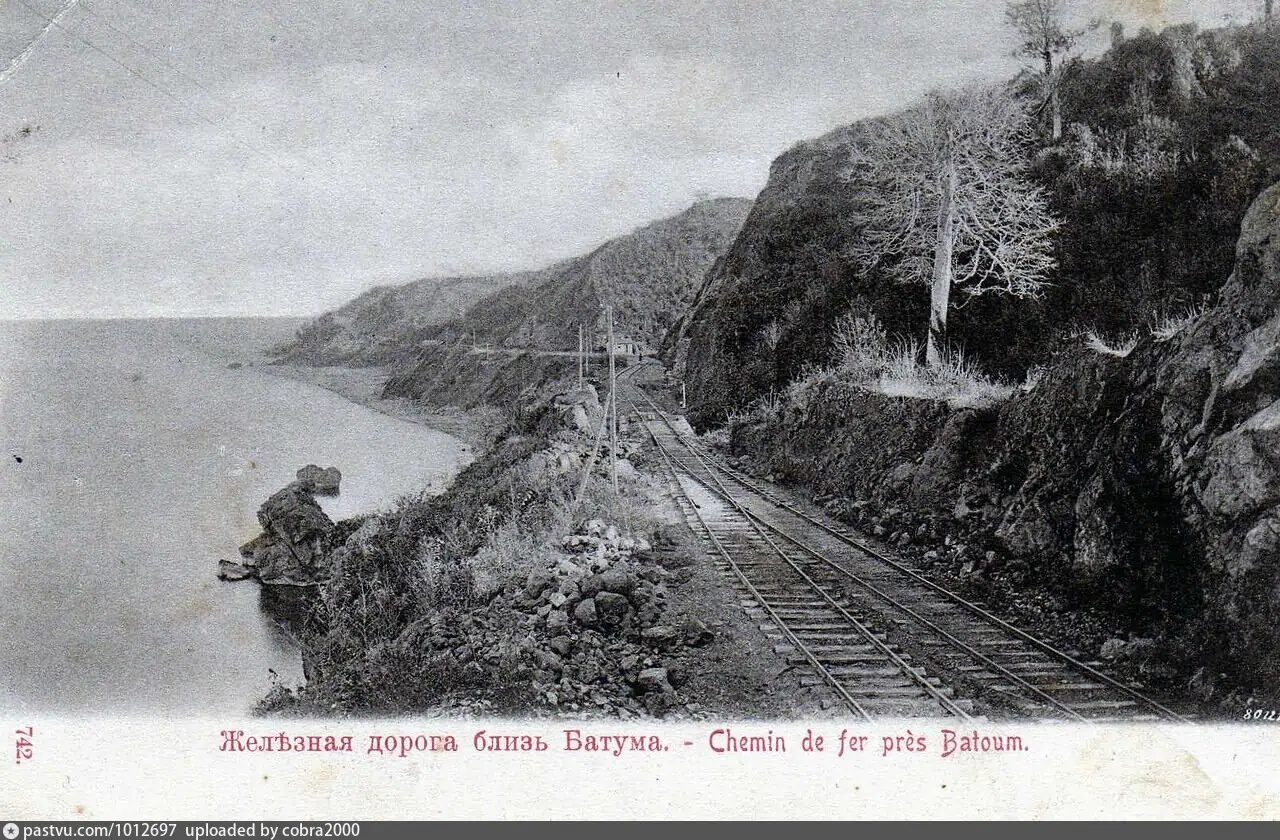
The construction of railways in the Caucasus is a more than difficult task, after all, nature is not particularly favorable for this kind of interference in its possessions, but the shareholders of the railway issue a series of cards with beautiful views, for which this route is really rich, to attract passengers.
The Rothschilds are quickly becoming the exclusive suppliers of oil and petroleum products to 137 Russian upstream and downstream factories and even giant enterprises - all thanks to the fact that their financial empire gives business what it so lacks for growth: money. In Russia at that time it was considered good luck to get a loan at 20% per annum, and the Rothschilds offer 6%. Those who wish can punish the expression “money is the fuel for business” that appeared much later, but the Baku oil business, already growing by leaps and bounds, is growing at an unprecedented rate.
Russian business gladly absorbs the Rothschild loans, grows very quickly and even thrives on them, without ceasing, however, to bombard the authorities with constant petitions to take away their property from the Rothschilds, appealing to the law prohibiting Jews from owning real estate.
True, the government does not pay attention to these appeals - one thing is some kind of Jews, quite another is the family of the Rothschild barons, whose capitals are able to solve, for example, the problem of payment of indemnities by France following the Franco-Prussian war.
At the same time, the world markets seem to have already been distributed: the market of Russia and neighboring countries is "crushed" by the Nobel brothers, Europe and America are inundated with oil from the Rockefellers (it is actively transported across the Atlantic - a fast and cheap way).
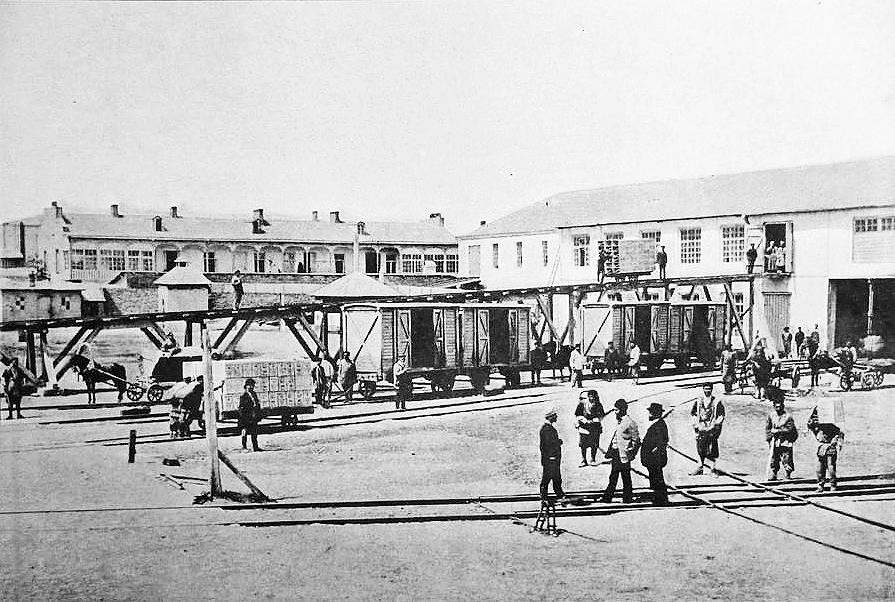
The Rothschild plant in Baku.
There remain very fast growing Asian markets that seem incredibly promising. Witte, who in those years actively promoted the idea of building the Trans-Siberian Railway, sees the meaning of this road in the fact that "the oil products of the Nobel brothers will be delivered to Vladivostok itself."
The Rothschilds are looking for a solution that would allow them to get to these markets faster and cheaper than others, since they already have access to the sea: in 1883 the Baku-Batumi railway line was built, the tank car park (an absolute new word in car building) was brought to 1890 to 3500 (two years earlier, the oil community pestered the government with requests to allocate money for the construction of at least 750 tanks, but, in the end, they do without the government), but there is nowhere to sell oil, and, without marketing, it brings losses to the Rothschilds.
In those years, a certain Fred Lane was known in Baku, who was called a "shadow broker" (probably, in every business there is such a "shadow man" who is not in sight, but who "solves problems"), and it is Lane who recommends the Rothschilds of a London merchant for named after Marcus Samuel, who comes from an immigrant Jewish family, as a person who is able to find a transport solution for the export of Baku oil.
This choice may seem strange to our contemporaries, since Samuel's experience in oil trading at that moment boiled down to the fact that he understood the need for kerosene and even tried to import it to Asian countries in 20-liter canisters, and his experience in logistics was limited to chartering several steamers. in the Eastern Seas, that is, it would be easier to say that he had no experience in solving problems of the proposed scale at all. Moreover, there is a widespread legend that before this "finest hour" Samuel had a small shop where he sold shells to the delight of lovers of souvenirs.
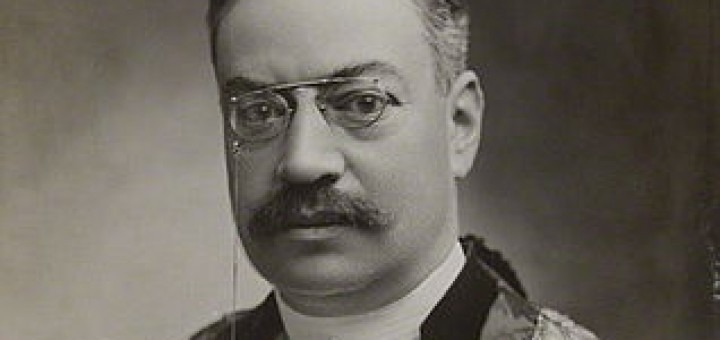
Here he is, the hero of our story, Marcus Samuel Jr.
This, of course, is not so, although his father, Marcus Samuel Sr., having moved to Brighton, England from Holland, really started with such a shop. Samuel Jr. received from his father already quite a solid wholesale business and was one of the largest traders in colonial goods in Britain and, at the same time, one of the largest exporters of English fabrics, a wealthy and successful man. Nevertheless, the very task of exporting oil seemed very important to him, and, as we say now, he accepted the challenge.
Note that the main capital of the Samuel (Marcus Samuel and his younger brother Samuel Samuel, who was engaged in a family business from Yokohama) was not even money, but a built network of contacts with influential people around the world and, first of all, in Asia, where he exported and where he imported his goods from.
In 1890, Samuel visited Baku, and he, like almost everyone who visited Baku in those years (all the wealth of the Nobels, for example, grew out of an accidental trip of one of the brothers to the Caucasus, where he went in search of supplies of wood for rifle butts and, according to pure coincidence, looked in Baku) "oil rush" seized and subdued.
Samuel's eye, apparently, was keen - he first learned about the existence of oil tankers and realized that they were the future. He saw and appreciated the latest innovations in the form of oil storage facilities.

Tanker Zoroaster, a miracle, stunning imagination of contemporaries. I must say that Shell will build tankers 10 times larger, since the tankers of the Nobel flotilla were limited in size: they were built in Swedish shipyards, then shipped in parts to the Caspian Sea. Considering the modest possibilities of that time for moving large cargo, tankers were not huge either. However, we are talking, after all, about river vessels, while Shell will deal with sea vessels.
Apparently, the general outlines of the oil export business matured in his head already during his visit to Baku and talking with intelligent guides such as Lane and Landau.
In 1891, Samuel entered into an agreement with the Rothschilds for the exclusive sale of their oil in Asia for a period of 9 years.
Returning to London, he lays on the stocks a whole flotilla of tankers with an incredible deadweight of 4,000 tons each (this is how the Nobel tanker Zoroaster that impressed Samuel was 10 times less in displacement).
In parallel, he solves the problem of the cheapest delivery possible, and it was connected with the fact that the passage of ships with oil through the Suez Canal was then prohibited for reasons of fire safety.
Samuel correctly puts the question to the canal's management: what would they like to see a vessel that meets their safety requirements? Name the parameters and requirements - and they will be met! The administration of the canal is in no hurry to answer, and the construction of tankers, meanwhile, continues ... As a result, when the Suez Canal finally puts forward its requirements for the transportation of oil, they strangely coincide in the parameters of the tankers built in the British docks.
This magical coincidence, even after more than a hundred years, inevitably causes a fit of irony - either the shipbuilding engineer Fortescue Flannery possessed the gift of foresight, or Samuel or Ferdinand Lesseps, who manages the canal he created, had this gift, but in 1892 an event occurred that The chroniclers of the "oil wars" call it nothing more than "breaking the blockade": the Murex tanker delivered the first 4,000 tons of kerosene from Batumi to Singapore, passing through the Suez Canal.
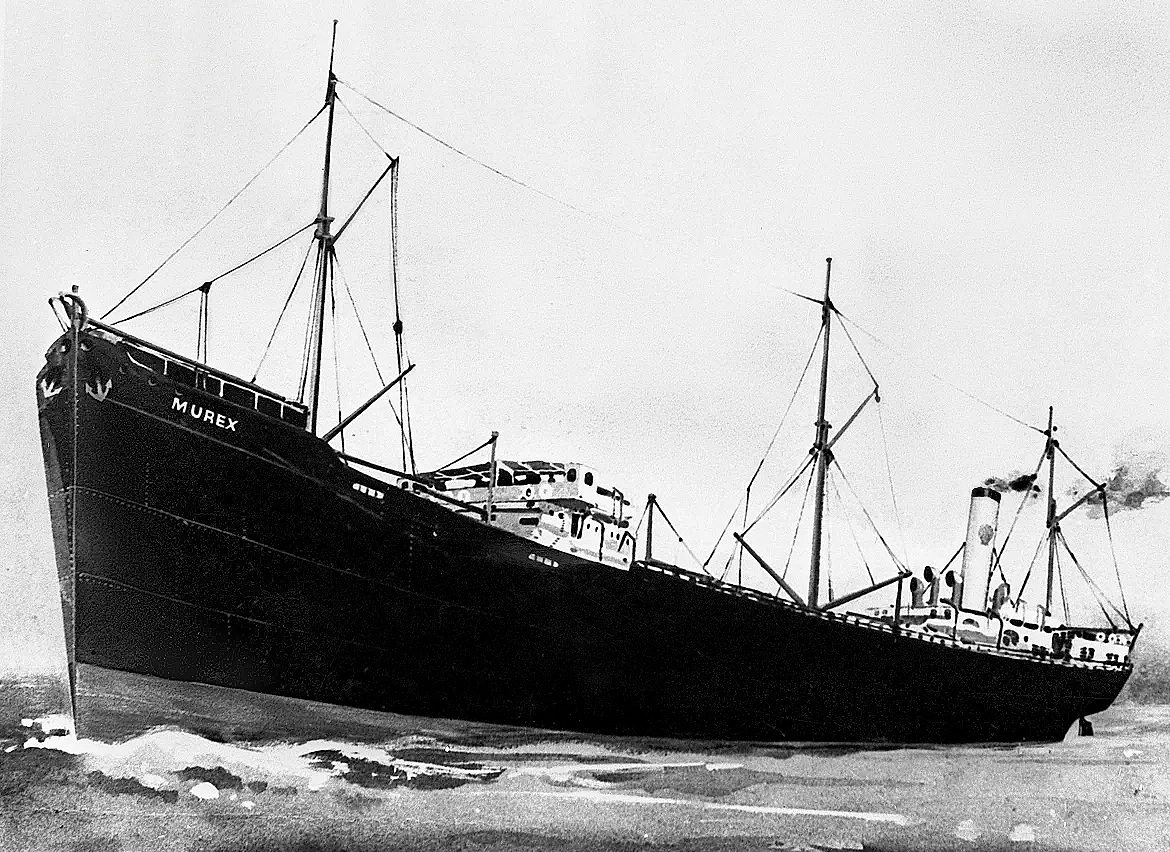
Here it is, the legendary tanker Murex, the one that will “break the blockade”.
The route from the Baku oil fields to the markets of Southeast Asia was reduced by 4,000 nautical miles, and the cost of transportation was almost half the price than before.
Rothschild oil not only "broke through the blockade", but conquered the Asian markets, especially since Samuel did not sit idle at all: in the 90s. his oil storage facilities were located in Singapore, Bangkok, Jakarta, Saigon, Shanghai, Hong Kong, Kobe and another one and a half of the most important Asian ports, and his fleet included more than 30 tankers, each of which could meet the monthly needs of a large Asian city.
For comparison: the Rockefeller empire - "Standard Oil" - at that moment possessed 4 steam and 16 sailing tankers and was not able to compete with Shell (as the Samuel brothers called their company in memory of the shell that gave the start to their family success).
In just a decade, Samuel became one of the richest people on the planet and did not deny himself the pleasure of showing off - he openly professes Judaism at a time when the wave of persecution of Jews throughout Europe is sharply increasing, he displays his luxury, not denying himself the pleasure to "wipe their nose" to the English "arbiters of the fate of the world." And at the same time, the English high society, with all its snobbery, accepts the "upstart" - in 1898 the Queen even knighted him, noting the quick reaction of the Shell company and Samuel personally to the accident of the British Navy battleship - Shell saved both the crew and the ship ... In addition, Samuel has held the post of Lord Mayor of London for many years - a position that, albeit not empowering, is unusually honorable.

Oil storage facilities appeared quite quickly, but the methods of transporting oil lagged behind: Baku oil generally began (and lasted quite a long time) on "oil caravans": oil was poured into wineskins and transported on camels.
The world "oil wars" at the beginning of the twentieth century are in full swing, there is a period of mergers and acquisitions. Emerging from nowhere and expanding the bottleneck of the oil trade, Shell appears to be the richest and best prize in these wars. At the same time, the Samuel brothers' own attempts to extract oil are not particularly successful - things are not going very well in the Asian fields they are developing, production and development, unlike transportation, is not at all Shell's strong point and not the peak of their competence. Samueli is also not averse to talking about merging, the only question is with whom and on what terms to merge.
Marcus Samuel rejects the offer from the Rockefellers to buy a controlling stake in Shell for an unimaginable 40 million at that time. And he himself is eyeing the Dutch company Royal Dutch, which ruffled Samuel's nerves no less than Standard Oil, and besides, it works in the Asian markets, like Samueli. Nevertheless, here Marcus Samuel sees serious advantages: geography is a changeable thing, today we are working here, and tomorrow we are moving somewhere else, but the merger of the Dutch competences in oil production and his own in transportation seems to be a very clever decision on both sides.

XIX « » — , . , XIX — «» .
Around the same time, Samuel besieges the admiralty of all countries of the world, offering them to transfer the navy from coal to fuel oil. Fuel oil at that time is fabulously cheap (it is just a secondary product, in fact, waste from the production of kerosene), and the fuel injection nozzle invented by the engineer Shukhov (which went down in history as the "Nobel nozzle", because the Nobels were the first to use on their river tankers and the nozzle itself, and fuel oil) made it possible to reduce the volume of fuel on board the vessel by more than half. In addition, fuel oil gave a smoother and more powerful combustion than coal, which made it possible to greatly reduce the crew, which in those years on military ships consisted of almost half of stokers. Unlike stokers, the nozzle did not get tired and made it possible to provide the necessary heat at any stage of the ship's path.
The English Admiralty displayed the notorious English conservatism in all its glory: Samuel's ideas were heard four times and rejected four times. While the Russian naval department accepted Samuel's ideas with a bang! - it seemed that a decision by the tsarist government was about to be made ... but even the Tsushima disaster, after which the need to modernize the fleet became obvious to literally everyone, did not bring the actual work closer in any way (looking ahead, let's say that the transition from coal to fuel oil will be started by the tsarist fleet only during the first world war).
Alas, Samuel did not manage to come to a merger with Royal Dutch with such a fat bonus, which could become a contract with one of the largest navies in the world, and in the new company, which became known as Royal Dutch Shell, he got "only" 40% of the shares and the title of chairman of the board, and the Dutchman (later he would take British citizenship) Henry Deterding became the director of the newly formed company.

Henry Deterding, Director of Royal Dutch Shell. He (quite in the case) is accused of sympathizing with Nazism and is even very often called an accomplice of Nazism. However, he died at the very beginning of 1939 and could not participate in the fascist aggression.
This does not mean, of course, that Samuel is out of work - thanks to his connections, for example, Royal Dutch Shell will be the very company that (in 1910) will start developing Grozny oil. Actually, Samuel's connections, resourcefulness and charm will open the way for the new company to many developments.
And Samuel will not abandon the topic of fuel oil for the Navy and, in the end, will "finish off" it when young Winston Churchill becomes the Lord of the Admiralty - this will happen in 1912 and, after England, all the other military, and in parallel with them - and civilians ships will be converted from coal fuel to fuel oil.
Marcus Samuel generally had a good nose for new items - he foresaw the development of aviation and saw in it a new and very large consumer of petroleum products, for aircraft designers he specially advertised aviation kerosene, which, as a result, became (and remains) the best fuel for aircraft. As in all other cases in life, Samuel did not wait for the aviation industry to say “yes” to him - he simply began to build storage facilities for aviation kerosene near the airfields, which predetermined the success of the deliveries. In the early 20s of the twentieth century, more than half of the world's aircraft were fueled with kerosene from Shell, and the first flight across the Atlantic was carried out on Shell fuel.
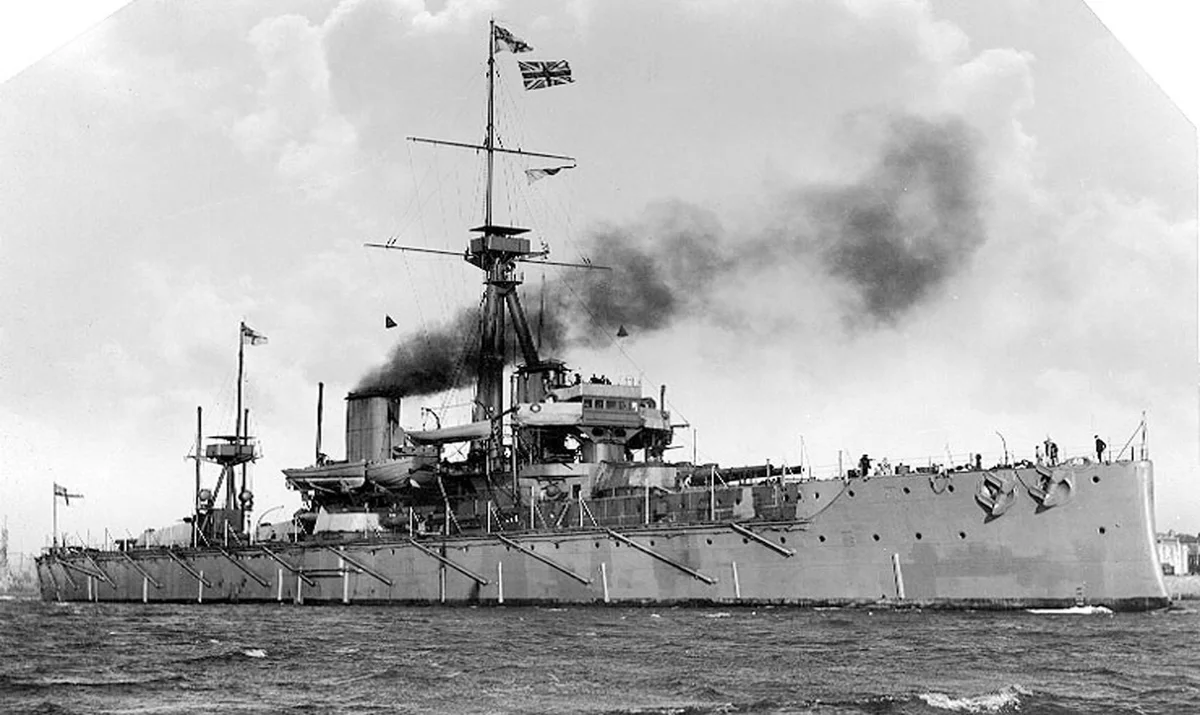
The pride of the British Navy, the battleship Dreadnought, built in 1906. One of the first will be equipped with a diesel engine.
However, the new director of Royal Dutch Shell, Henry Deterding, a figure, let's say, not too unambiguous and even in a sense extravagant, turned out to be an excellent businessman. Through his efforts, the company really expanded the geography of its activities, surpassing all others: they opened production in Venezuela, Egypt, Romania; their oil storage facilities were located in almost every port on the planet, the very value of the Shell company has grown since its inception in 1897 at $ 1.8 million to $ 26 million over the next 30 years. Royal Dutch Shell, quite by business, became "number one" in the oil market (note that after the Second World War, largely due to the promiscuity and negligence of Henry Deterding, who supplied Hitler with petroleum products, whom it turned out to be a fan of, the company will lose the first place in the world ,but it will not cease to be one of the leading players).
As for Marcus Samuel, in the 1920s, after his fiftieth birthday, he began to retire, more engaged in public functions, such as participating in the ceremonies of the London City Hall, and leading a secular life (in 1921 he became a baron, and in 1925 received the title of the first Viscount Biersted).
Marcus Samuel will die in London in 1927, the dubious "happiness" from fairy tales - "live long and die in one day" - is about him and his wife Fanny, whom he will survive for two hours.
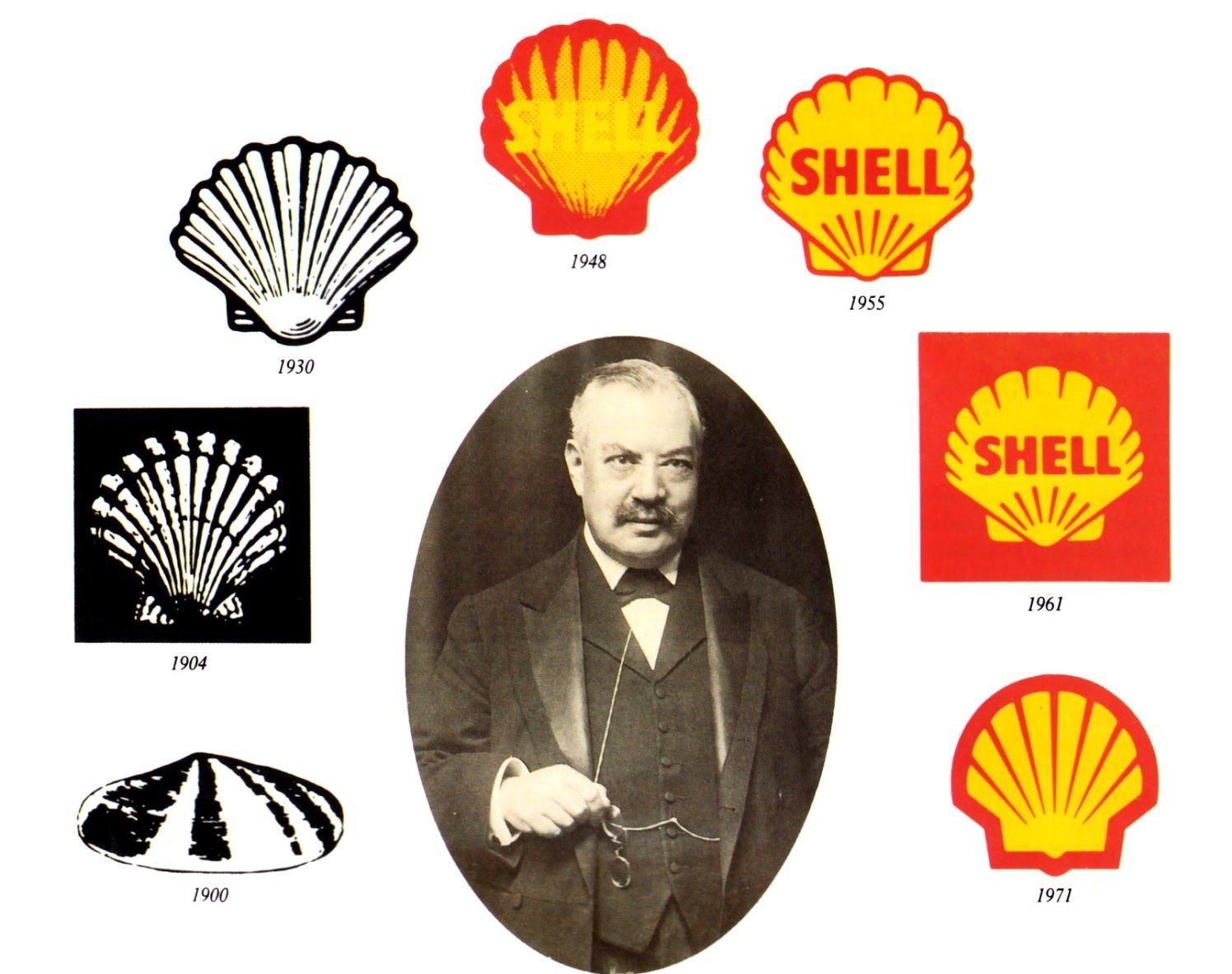
In 2005, Royal Dutch Shell will officially become a unified company (before that, formally, Royal Dutch and Shell retained some independence, trying, albeit not too strictly, to divide the functions of production and transportation).
We always know where the chain of events, which began with the Batumi franco port and gift shells in the Brighton shop, will lead this company, because the brainchild of Marcus Samuel is doomed to be always in sight.
Author: Alexander Ivanov
Macleod VPS servers are fast and secure.
Register using the link above or by clicking on the banner and get a 10% discount for the first month of renting a server of any configuration!
 XMcLood VPS servers are fast and secure.
XMcLood VPS servers are fast and secure.
Register using the link above or by clicking on the banner and get a 10% discount for the first month of renting a server of any configuration